
THE WORLD'S WILD LION population is in grave danger. There are only 600 Asiatic lions remaining, all of which live in a wildlife reserve in the Gir Forest in northwest India. And just 23,000 African lions roam the land between the southern edge of the Sahara and northern South Africa. The total number of wild lions worldwide has dropped by more than 40 percent in the last half century. But in the past, lions were among the most geographically widespread animals on Earth. Each ancient culture that encountered lions had its own way of embracing their power, and the big cats became symbols of spirituality, kingship, bloodlust, divinity, and even safety and peace.
RITUALS
Spain
More than 15,000 years ago, a group hunter-gatherers in northern Morf of Spain killed a lion and brought it home. Cave lions (Panthera spelaea) had roamed Europe for at least 400,000 years, but by this time, their numbers were declining as they were forced to compete for prey with an increasing human population. The lion must have been a great prize. Rather than cut up the feline for food at their cave's entrance, as they did with their other prey, the people carried parts of the huge animal 425 feet into the cave, now called La Garma, to an area known as the Lower Gallery. There, archaeologists discovered nine of the animal's phalanges, the part of the paw to which the claws are attached.
The faunal remains in La Garma's Lower Gallery are uniquely well preserved and provide rare evidence of the daily lives of Paleolithic hunter-gatherers and of the animals they interacted with. More than 4,000 mammal bones and fragments have been uncovered in the Lower Gallery, but none more fascinating than the lion's.
This story is from the {{IssueName}} edition of {{MagazineName}}.
Start your 7-day Magzter GOLD free trial to access thousands of curated premium stories, and 9,000+ magazines and newspapers.
Already a subscriber ? Sign In
This story is from the {{IssueName}} edition of {{MagazineName}}.
Start your 7-day Magzter GOLD free trial to access thousands of curated premium stories, and 9,000+ magazines and newspapers.
Already a subscriber? Sign In
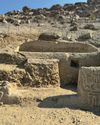
ORIGINS OF PERUVIAN RELIGION
While investigating looters' holes at the site of La Otra Banda in northern Peru's Zaña Valley, archaeologist Luis A. Muro Ynoñán of the Field Museum and the Pontifical Catholic University of Peru spotted carved blocks around seven feet below the surface.
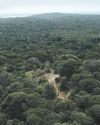
ISLAND OF FREEDOM
Many of the enslaved Africans sent to Brazil beginning in 1549 were from what is now Angola, where one of the most widely spoken languages was Kimbundu.
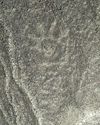
NAZCA GHOST GLYPHS
From the 1940s to the early 2000s, geoglyphs were discovered in the Nazca Desert of southern Peru depicting animals, humans, and other figures at the rate of 1.5 per year.

COLONIAL COMPANIONS
The ancestry of dogs in seventeenth-century Jamestown offers a window into social dynamics between Indigenous people and early colonists.

BAD MOON RISING
The British Museum houses around 130,000 clay tablets from ancient Mesopotamia written in cuneiform script between 3200 B.C. and the first century A.D.
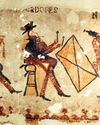
DANCING DAYS OF THE MAYA
In the mountains of Guatemala, murals depict elaborate performances combining Catholic and Indigenous traditions
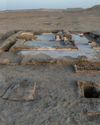
LOST GREEK TRAGEDIES REVIVED
How a scholar discovered passages from a great Athenian playwright on a discarded papyrus

Medieval England's Coveted Cargo
Archaeologists dive on a ship laden with marble bound for the kingdom's grandest cathedrals

Unearthing a Forgotten Roman Town
A stretch of Italian farmland concealed one of the small cities that powered the empire
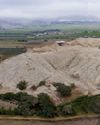
TOP 10 DISCOVERIES OF 2024
ARCHAEOLOGY magazine reveals the year's most exciting finds